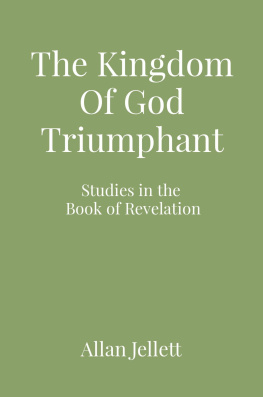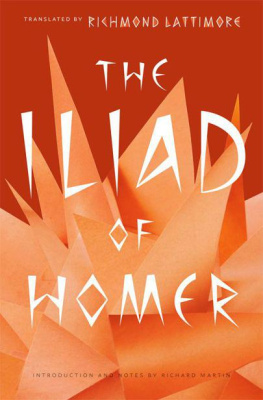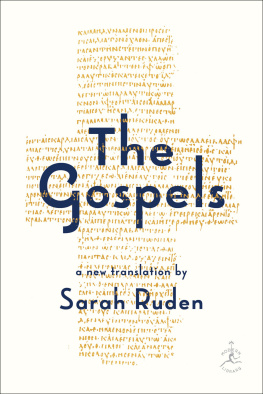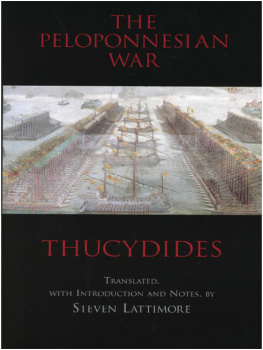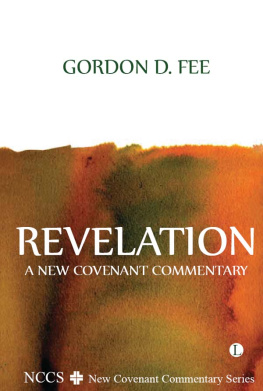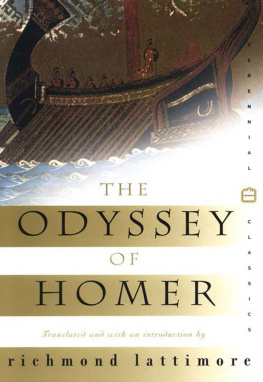Richmond A. Lattimore - The Four Gospels and the Revelation
Here you can read online Richmond A. Lattimore - The Four Gospels and the Revelation full text of the book (entire story) in english for free. Download pdf and epub, get meaning, cover and reviews about this ebook. publisher: Macmillan, genre: Detective and thriller. Description of the work, (preface) as well as reviews are available. Best literature library LitArk.com created for fans of good reading and offers a wide selection of genres:
Romance novel
Science fiction
Adventure
Detective
Science
History
Home and family
Prose
Art
Politics
Computer
Non-fiction
Religion
Business
Children
Humor
Choose a favorite category and find really read worthwhile books. Enjoy immersion in the world of imagination, feel the emotions of the characters or learn something new for yourself, make an fascinating discovery.

- Book:The Four Gospels and the Revelation
- Author:
- Publisher:Macmillan
- Genre:
- Rating:3 / 5
- Favourites:Add to favourites
- Your mark:
- 60
- 1
- 2
- 3
- 4
- 5
The Four Gospels and the Revelation: summary, description and annotation
We offer to read an annotation, description, summary or preface (depends on what the author of the book "The Four Gospels and the Revelation" wrote himself). If you haven't found the necessary information about the book — write in the comments, we will try to find it.
The Four Gospels and the Revelation — read online for free the complete book (whole text) full work
Below is the text of the book, divided by pages. System saving the place of the last page read, allows you to conveniently read the book "The Four Gospels and the Revelation" online for free, without having to search again every time where you left off. Put a bookmark, and you can go to the page where you finished reading at any time.
Font size:
Interval:
Bookmark:
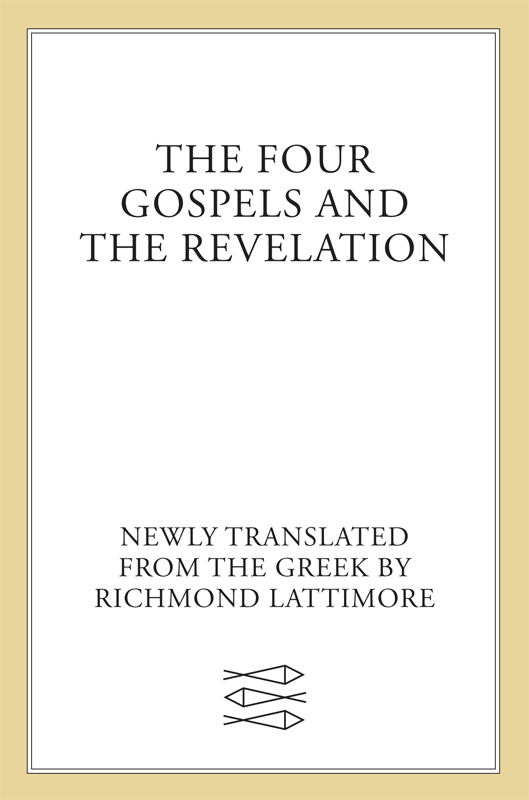

The author and publisher have provided this e-book to you for your personal use only. You may not make this e-book publicly available in any way. Copyright infringement is against the law. If you believe the copy of this e-book you are reading infringes on the authors copyright, please notify the publisher at: us.macmillanusa.com/piracy.
Contents
It was while I was teaching various Greek texts to beginning students that I was struck by the natural ease with which Revelation turned itself into English. I undertook the translation, and The Revelation of John appeared as a separate volume in 1962. I have continued with the Four Gospels, but with many interruptions for other tasks. Revelation went out of print, and the publishers, Harcourt Brace Jovanovich, kindly reverted the rights to me, so that we have been able to add it, with some slight revision, to the Four Gospels.
I have held throughout to the principle of keeping as close to the Greek as possible, not only for sense and for individual words, but in the belief that fidelity to the original word order and syntax may yield an English prose that to some extent reflects the style of the original. The aim of at least some other contemporary translators has been, avowedly, just the opposite: to be faithful to the sense but to render it in contemporary idiom. This is, of course, a perfectly legitimate aim, and is part of the reason why there is room for a number of modern translations.
Let me illustrate. I have translated Mark 10.27: for men it is impossible, but not for God, since for God all things are possible. I could have written: Men cannot do it, but God can do anything. That says the same thing, but does not reflect the way Mark wrote. At John 11.21 and 32, first Martha, then Mary say: Lord, if you had been here, my brother would not have died. So I translated, and cannot claim originality, for the words are identical with those of the Revised Standard Version. I had thought that so simple a statement could be translated only in this one way. But I have not found it in any other translation that I have consulted.
Consider a more extended passage. For Mark 7.15 I have written: Then the Pharisees gathered to him, and some of the scribes who had come from Jerusalem, seeing that some of the disciples were eating their bread with profane, that is, unwashed, hands: for the Pharisees, and all the Jews, will not eat unless they have washed hand against fist, thus keeping the tradition of their elders; and when they come from the marketplace they will not eat unless they have purified themselves, and there are many other observances that are traditional with them, the washing of cups and vessels both wooden and bronze: the Pharisees and the scribes asked him: Why do your disciples not walk according to the tradition of our elders, but eat their bread with profane hands? Let me try to put this into what is more like a contemporary idiom: The Pharisees, with some of the scribes, went out from Jerusalem to visit him. They noticed that some of his disciples ate without first washing their hands, which made their hands profane. The Pharisees and the Jews in general observe a tradition handed down from their ancestors not to eat without first washing their hands thoroughly. When they come in from the marketplace they will not eat until they have purified themselves. They have many other such traditions, like washing their cups, whether these are made of wood or bronze. Because of all this the Pharisees and the scribes asked Jesus: Why do your disciples disobey our ancestral tradition by eating with profane hands?
Now, other modern translators have modernized this passage much more successfully than I have. My heart is not in this kind of rearrangement of the syntax. Still, all the essential meaning is there. But to me it reads much less like Mark than the version which stands in my translation.
It will follow, or should, that since each of the Gospels, and Revelation, is the work of a different author with a different style, they should read differently in English. I noted that Revelation seemed to translate itself, and my aim has been to let all of my texts translate themselves with as little interference as possible. But it is not always so easy. To go from Revelation to Matthew is like going from Ruskin to Carlyle. Mark in particular offers problems. Since Mark is, by general if not universal consent, the earliest evangelist, we start with his gospel. Matthew and Luke drew on him extensively, but constantly saw fit to rewrite him after their own manners. He can, as illustrated above, be abrupt and crabbed. Also, the nature of the language itself produces difficulties. There are some terms, such as the various forms of skandalon (see note on Matthew, ), which cannot always be translated in the same way, which really cannot be translated at all, but for which the translator will have to devise some kind of paraphrase which will convey the essential sense.
To this end also, I have written some simple notes, to explain my translations or give alternative interpretations. Without competence to comment on the manuscript tradition, I have simply followed the text of Westcott and Hort, The New Testament in Greek (New York: Macmillan, 1957). The rare exceptions have been noted. Words enclosed in square brackets are of doubtful authenticity. I have also regularly consulted The Pelican Gospel Commentaries, namely, D. E. Nineham, Saint Mark; J. C. Fenton, Saint Matthew; G. B. Caird, Saint Luke; and John Marsh, Saint John.
It is a pleasure to record my obligations and thanks: to my publishers for contracting to produce this volume; to Alice Lattimore for help in preparing the manuscript; to Frederick Morgan for recommending publication; and to the memory of Fred Wieck, the earliest editor of my poems and translations.
Mark is believed to have written his gospel after Peters death in Rome, which is presumed to have been around A.D . 64. It is generally agreed that Marks is the earliest of the four gospels.
The beginning of the gospel of Jesus Christ. As it is written in Isaiah the prophet: Behold, I send forth my messenger before your face, who will make ready your way. The voice of one crying in the desert: prepare the way of the Lord, make straight the roads before him. John the Baptist was in the desert preaching the baptism of repentance for the remission of sins. And all the land of Judaea came out to him and all the people of Jerusalem, and they were baptized by him in the river Jordan, confessing their sins. John was clothed in camels hair, and a belt of hide around his waist, and he ate locusts and wild honey. And he preached, saying: He who is stronger than I is coming after me, and I am not fit to stoop down and untie the thong of his shoes. I baptized you with water, but he will baptize you with the Holy Spirit.
And it happened in those days that Jesus came from Nazareth in Galilee and was baptized in the Jordan by John. And as soon as he came out of the water he saw the skies split and the Spirit like a dove descending upon him; and there came a voice from the skies, saying: You 1.11-28 are my son whom I love, with you I am well pleased. And immediately the Spirit drove him out into the desert. And he was in the desert forty days, being tested by Satan, and he lived with the wild animals, and the angels served him.
After John was betrayed Jesus came into Galilee preaching the gospel of God, saying: The time is fulfilled and the Kingdom of God is near. Repent and believe in the gospel. And as he went along past the Sea of Galilee, he saw Simon and Andrew the brother of Simon casting their nets in the sea, for they were fishermen. And Jesus said to them: Come, follow me, and I will make you fishers of men. And at once they left their nets and followed him. And going on a little farther he saw James the son of Zebedee and John his brother, these also in their boat mending their nets. And at once he called them. And leaving their father Zebedee in the boat with the hired workers they went away, and followed him.
Font size:
Interval:
Bookmark:
Similar books «The Four Gospels and the Revelation»
Look at similar books to The Four Gospels and the Revelation. We have selected literature similar in name and meaning in the hope of providing readers with more options to find new, interesting, not yet read works.
Discussion, reviews of the book The Four Gospels and the Revelation and just readers' own opinions. Leave your comments, write what you think about the work, its meaning or the main characters. Specify what exactly you liked and what you didn't like, and why you think so.


